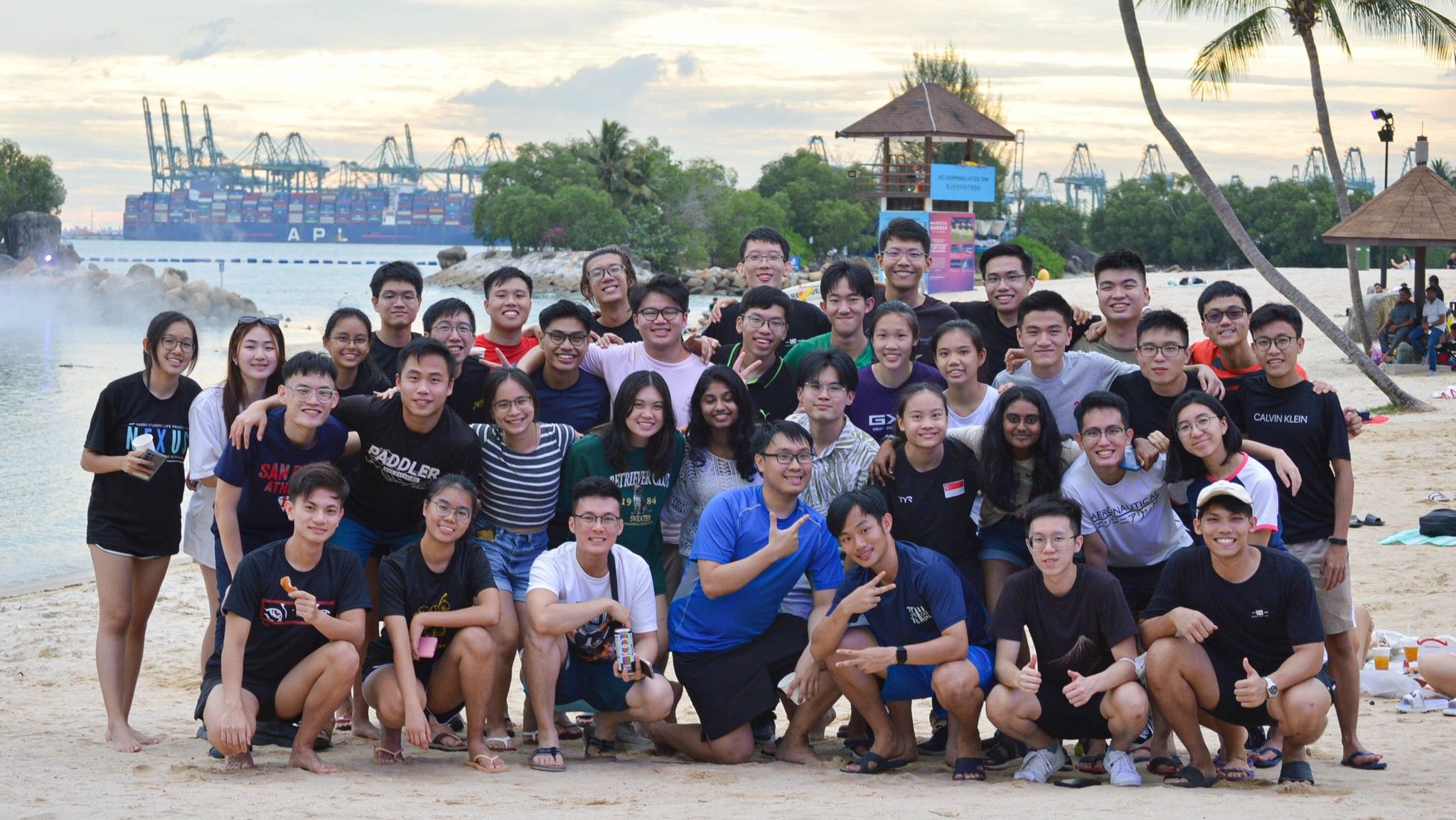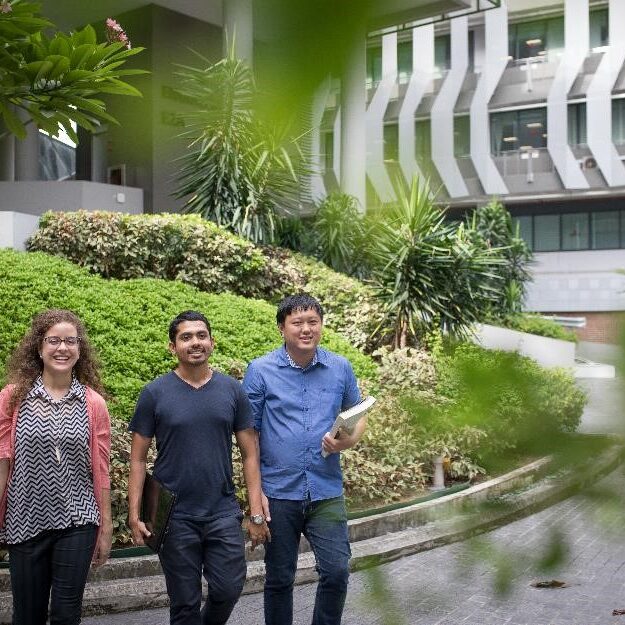APPLY TO CDE
How to Apply?
1
Choose your CDE programme
- Architecture (direct admission)
- Computer Engineering (direct admission)
- Engineering (common admission)
- Industrial Design (direct admission)
- Landscape Architecture (direct admission)
2
Common admission? Choose your preferred major
Engineering (common admission) majors
- Biomedical Engineering
- Chemical Engineering
- Civil Engineering
- Electrical Engineering
- Engineering Science
- Environmental and Sustainability Engineering
- Industrial and Systems Engineering
- Infrastructure and Project Management
- Materials Science and Engineering
- Mechanical Engineering
- Robotics and Machine Intelligence
Apply Now
Find out more about the application process that is relevant to your qualification:
Scholarships, Financial Aid and Awards
College-Level

Empower your undergraduate journey with the Design & Engineering Scholars Programme, awarded to outstanding students. The scholarships offer full tuition coverage, strong community mentorship, and subsidised 2 years of on-campus accommodations. D&E-Scholars also gain priority placement for a semester abroad on exchange and valuable industry opportunities.

In addition to the E-Scholars and D-Scholars scholarships, CDE offers several bond-free scholarships to its brightest students in recognition of their academic strengths and pursuit of excellence.

Recognizing excellence, the CDE Masters Award is granted to exceptional individuals admitted to NUS CDE's full-time undergraduate engineering programmes. Eligible recipients can pursue selected postgraduate coursework degrees, with full tuition fees covered, embodying the spirit of academic achievement and advancement in engineering fields.
University-level

NUS offers a variety of undergraduate scholarships and awards in recognition of outstanding academic achievements, leadership qualities and special talents

NUS financial aid packages may comprise a combination of loans, bursary and work-study assistance. While there is a common period for application, should you need assistance after the closing date, your request will still be considered.
Frequently Asked Questions (FAQs)
1
What will an education at CDE entail?
An education at CDE will be an exciting, interdisciplinary experience for students where their learning journey takes centre stage. We are equipping students with an adaptable toolbox of skills across disciplines, moving them beyond a knowledge-based education to a mindset-based approach to problem-solving. The CDE common curriculum provides a broad intellectual foundation on which you can continuously upgrade, evolve and re-pivot in a fast-changing world. Our majors build on top of the common curriculum to allow you to explore your chosen field, and our unrestricted elective space gives you the freedom to customise your educational experience.
2
What is the difference between common admissions and direct admission courses?
The common admissions “Engineering” programme has a single set of entry requirements. If you are admitted to this common admissions you have access to any one of the 11 majors in the common admissions pool; which one you choose is up to you. In contrast, each of our direct entry programmes have their own admissions requirements. If you gain admission to one of our direct entry programmes this will predetermine which degree programme you will follow, be it Architecture, Computer Engineering, Industrial Design, or Landscape Architecture.
3
If I select Engineering common admissions, will a major be assigned to me?
If you select Engineering as one of your choices, you will then be asked to declare a preferred major. Alternatively, you can also choose “Major to be Decided” and decide on your major at the point of matriculation.
4
If I select Engineering common admissions, is my choice of major guaranteed?
Yes, if you are admitted to the Engineering common admissions programme you can choose any one of those 11 majors and will have a place in the major of your choice.
5
What subjects should I take to get into CDE?
This depends on two things, your pre-university qualification and which of our degree programmes you are interested in. For our Engineering common admissions programme, A-level students should take H2 Mathematics, and IB students should take HL Mathematics: Analysis and Approaches. Polytechnic students should have an accredited diploma. Our direct admissions programmes have different admissions requirements. The details can be found here https://www.nus.edu.sg/oam/apply-to-nus.
6
What does “build your own degree” mean?
The new curriculum structure includes ten courses of Unrestricted Electives (UE), which you can use to decide how broad, deep or integrated you want your education to be. If you wish to go deeper within your chosen discipline, you can opt to read a specialisation (or two) within your UE space. If you prefer instead to broaden your knowledge and skills in a complementary or contrasting area, consider taking a minor or second major.
7
Am I allowed to read second majors and minors outside CDE?
Yes, certainly. NUS is a comprehensive university, and you will have access to all second majors and minors offered by our various Faculties and Schools.
8
Do I have to decide on a second major or minor at the point of application, or can I decide later?
A short list of curated double major and major-minor combinations is available at the point of application. However, this list contains only a small fraction of the 1000+ possible combinations that are available. Upon matriculation, you are welcome to declare or apply for a second major or minor, up until your fifth semester of study.








